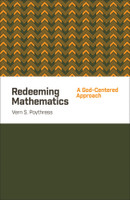
Poythress, Vern S.
Serious Bible readers all recognize that there are differences between accounts of the same events in Matthew, Mark, Luke, and John, and no responsible reader can simply sweep these differences under the rug. But can all of the accounts still be reconciled with a belief in biblical inerrancy?
Responding to the questions surrounding the gospel narratives, New Testament scholar Vern Poythress contributes a worthy case for inerrancy in the gospels and helps readers understand basic principles for harmonization. He also tackles some of the most complicated exegetical problems, showing the way forward on passages that have perplexed many, such as the centurion's servant, the cursing of the fig tree, and more.
All those interested in the authority of Scripture will find in this volume great encouragement and insight as Poythress has provided an arresting case to stem the tide of skepticism.
Table of Contents:
Part 1: The Challenge Of Harmonization
1. Difficulties in the Gospels
2. An Example: The Centurion’s Servant
Part 2: Principles for Harmonization
3. Initial Principles for Harmonization
4. History, Theology, and Artistry
5. The Historical Claims of the Gospels
6. The Authority of the Gospels
7. A Mental-Picture Theory
8. Truth in a Biblical Worldview
9. Truthfulness versus Artificial Precision
10. Variations in Writing History
Part 3: Attitudes in Harmonization
11. Confidence and Doubt
12. Seeking God
13. Limitations in Human Knowledge
14. Intellectual Suffering
15. Positive Purposes for Difficulties
Part 4: Special Issues in Harmonization
16. The Synoptic Problem
17. Temporal Order of Events
Part 5: Individual Cases
18. Cleansing the Temple
19. The Rejection of Jesus at Nazareth
20. Cursing the Fig Tree
21. Commissioning the Twelve
Author
Endorsements
“I can think of no one in the world better qualified to write a defense of biblical inerrancy than my lifelong friend Vern Poythress. Serious Bible readers all recognize that there are differences between accounts of the same events in Matthew, Mark, Luke, and John, and no responsible reader can simply sweep these differences under the rug. But can all of the accounts still be reconciled with a belief in biblical inerrancy? In this book, Poythress provides an outstanding resource that carefully analyzes every important Gospel passage where an inconsistency or a contradiction has been alleged. He draws on the rich resources of centuries of church history and his own remarkable wisdom in analyzing human linguistic communication to provide a sure-footed, thoughtful, humble, and even spiritually challenging guide to these key passages. This is the best book I know of for dealing with Gospel difficulties. It is profoundly wise, insightful, and clearly written, and it will surely strengthen every reader’s confidence in the trustworthiness of the Bible as the very words of God.” - Wayne Grudem, Research Professor of Theology and Biblical Studies, Phoenix Seminary
“Shall we defend biblical inerrancy with arguments that are naïve and unconvincing? Or shall we assume that discrepancies among the Gospels cannot be resolved? Vern Poythress shows us that we need not make such a choice. Clear, convincing, accessible, practical, Inerrancy and the Gospels is everything we need in a book on this topic. While sharpening readers’ skill at harmonization, Poythress also develops a thoughtful, God-honoring foundation for addressing Gospel difficulties and the spiritual challenges that accompany them. I want every student, every pastor, and every skeptic I know to read this book—and recommend it to their friends.” - C. D. "Jimmy" Agan III, Associate Professor of New Testament, Director of Homiletics, Covenant Theological Seminary
“When Vern Poythress has chosen to write on a particular subject, the resulting book has always been (in my memory) the best book on that subject. This one is about the inerrancy of Scripture, dealing particularly with problems in the Gospel narratives, and I know of nothing better in the field. It is fully cogent, very helpful, linguistically sophisticated, and, above all, faithful to the Scriptures as the word of God.” - John M. Frame, J. D. Trimble Chair of Systematic Theology and Philosophy, Reformed Theological Seminary, Orlando